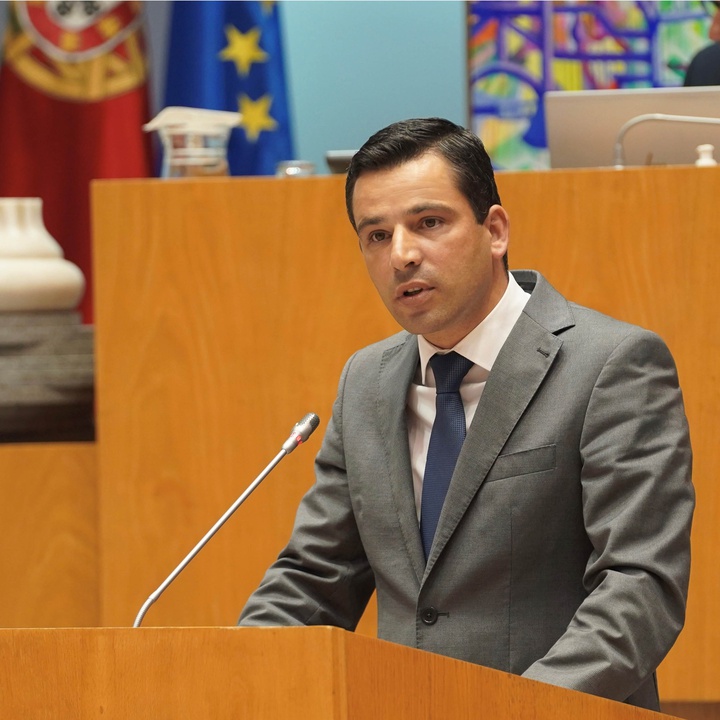Text size:
News

Azores 20+ Waste Prevention and Management Strategic Program approved by Parliament
June 15, 2023
The Legislative Assembly of the Autonomous Region of the Azores approved on Wednesday the Strategic Program for the Prevention and Management of Waste of the Azores 20+ (PEPGRA 20+), presented by the Regional Government of the Azores.
The Regional Secretary for the Environment and Climate Change, Alonso Miguel, stated that “the waste management policy represents a huge challenge, especially complex in an archipelagic and ultraperipheral reality such as the Azores, demanding, as such, a robust and well-defined strategy, based on the principles of sustainability and circular economy and respect for the hierarchy of waste management”.
“We are fulfilling yet another commitment made within the scope of the Government Program for this legislature, with the presentation of this proposal, which implements the revision of PEPGRA, contemplating changes resulting from aspects identified in the mid-term evaluations, promoting adaptation to current economic, social conditions and environmental aspects of the Region and conforming the regional legislation with the current regulatory framework of the European Union, in the field of waste prevention and management”, said the minister, during the parliamentary debate.
PEPGRA 20+ focuses on three strategic objectives: the prevention of waste production and its impact on the environment; the promotion of integrated and sustainable waste management; and the promotion of efficient use of resources, contributing to a circular economy.
According to Alonso Miguel, when defining the PEPGRA 20+ strategy, the specificities of the Region were considered, which are characterized by constraints in terms of creating economies of scale, inter-regional cooperation, constraints resulting from greater tourist activity, dispersion geographic population, multiplication of infrastructure, transport logistics and the discrepancy between islands, which, in general, make waste management difficult and burdensome in the Region.
“The PEPGRA 20+ reinforces the order of priorities established in the waste management hierarchy, focusing on the development of new and reinforced lines of action, aligned with the strategic challenges assumed by the European Union, namely, Production Prevention, Selective Collection of Bio-waste, Selective Collection of Textiles, Combating Food Waste, Selective Collection of Domestic Hazardous Waste, the Goal of Preparing for the Reuse and Recycling of Urban Waste and the Goal of Disposing of Urban Waste in Landfills, as well as the transition from a linear economy to a circular economy”, he stressed.
Alonso Miguel also highlighted that “waste management in the Region has been registering a very positive evolution, as a result of the public policies and projects developed by the Regional Government in this Legislature, such as, for example, the Reusable Drinks in the Azores, which allowed the installation of 25 reverse logistics machines, distributed across all municipalities in the Region, which represented an investment of more than one million euros by the Regional Secretariat for the Environment and Climate Change”.
“This positive evolution will be further reinforced in a very significant way, first with the implementation of the 95 measures foreseen in PEPGRA 20+, but also with the conclusion of other relevant ongoing projects, such as the Restructuring and equipping of the Waste Processing Centers of islands of Flores, Faial, Pico, São Jorge, Graciosa and Santa Maria, for adaptation to the composting process of the selective collection of organics and production of quality compost, in a very significant investment, exceeding six million euros, as well as the Roadmap for the Regional Circular Economy, both to be concluded by the end of 2023”, he added.
The Regional Secretary also praised “the contribution and the significant efforts made by the municipalities, parish councils, waste management operators and the various entities with competence in this matter”, highlighting that “this concerted and dedicated action is crucial to achieving the objectives and targets set out in PEPGRA 20+, namely with regard to the rates of preparation for reuse and recycling and the disposal of waste in landfills”.
Alonso Miguel concludes by referring, however, that “the key to successful waste prevention and management” depends on the commitment and individual contribution of each Azorean to this enormous challenge.
“To this end, we will continue to invest heavily in environmental awareness and education, through the Offer of School Environmental Awareness Activities, as well as through the reinforced development of actions and awareness campaigns in the field of waste management and the circular economy”, ended.

